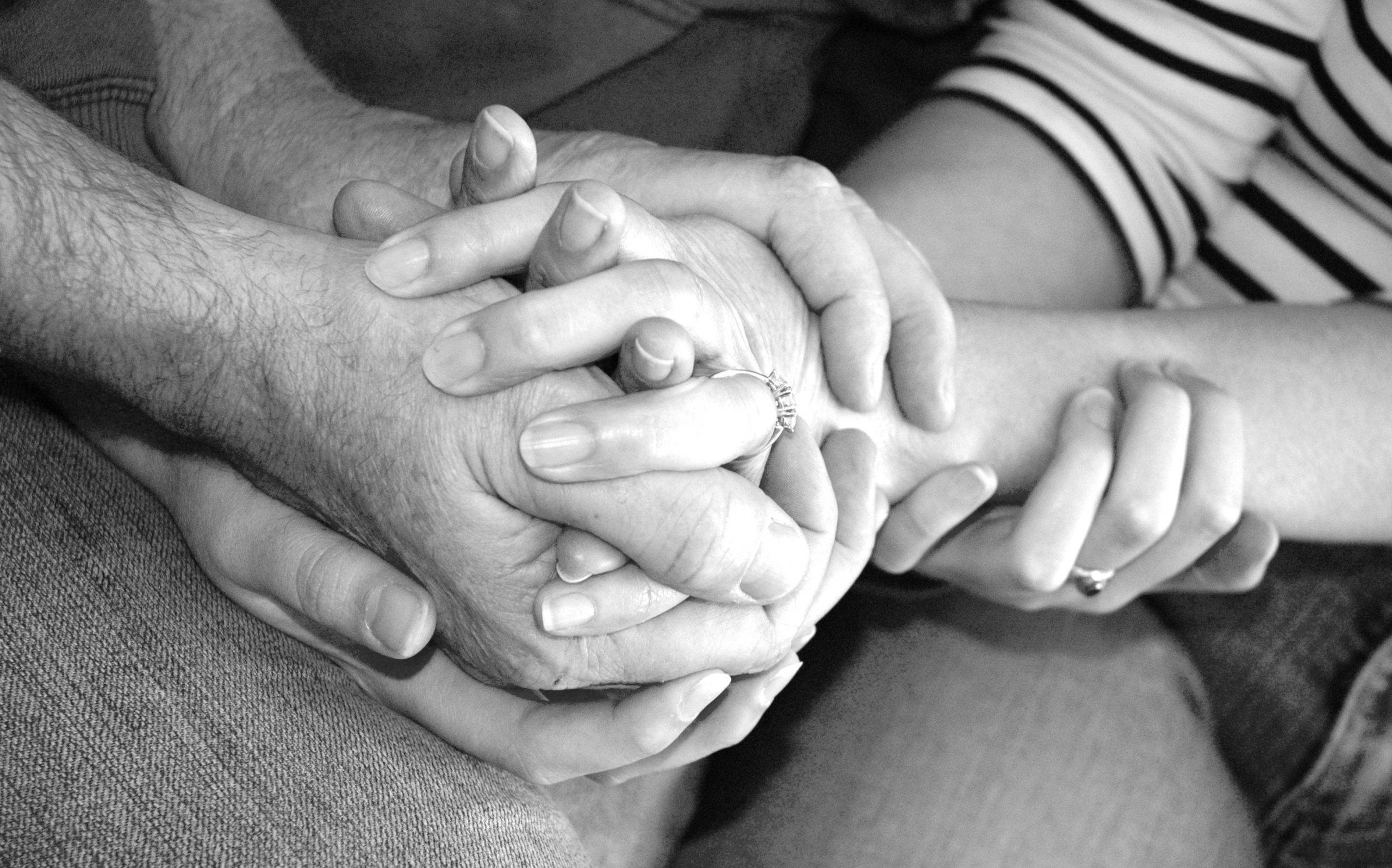Life becomes dark and empty when your loved one passes away. When the light of your life extinguishes as per the universal law, grief engulfs you with a feeling of immense pain and sadness in your heart. Sometimes, the pain becomes so acute that it leads to depression and insomnia. To keep your mental health stable, there are a few steps you can take to handle grief and loss of a loved one. In this post, we will discuss them one by one.
4 Steps You Must Take to Handle Grief and Loss Beforehand
 Death is not a planned event unless someone conspires to murder somebody. No one can avoid the 3 stages of life – old age, sickness, and death. As such, it makes sense to take a few precautionary steps beforehand to deal with the practicalities associated with death.
Death is not a planned event unless someone conspires to murder somebody. No one can avoid the 3 stages of life – old age, sickness, and death. As such, it makes sense to take a few precautionary steps beforehand to deal with the practicalities associated with death.
- Buy a final expense life insurance policy: The first thing that you have to do after your loved one passes away is to arrange a funeral ceremony. Nowadays, funeral ceremonies cost a lot of money. It costs around $15,000 to complete the entire process. This includes legal fees, hospital bills, memorial plots, caskets, transportation, and so on.
Lack of money to cover the funeral expenses of your family member can take a toll on your emotional health. Grief doubles when you’re overburdened with the responsibility of covering unpaid bills and debts of your deceased parent.
A final expense life insurance policy helps you to cover the final expenses of your loved one. Apart from the funeral expenses, this insurance covers the outstanding debts of the individual as well. If you have aged parents who can’t pay the insurance premiums, then you can buy this insurance policy for them. There was no medical check. So, anyone can qualify for this policy. All you need to prove is that you’re financially responsible for paying all the expenses related to funeral and other debts after your parents have left this world.
The final expense life insurance policy is usually available to people aged between 40 and 80 years. Policy coverage kicks in within a business day if a person qualifies for an immediate death benefit policy. In the event a person is not in good health, they would always be approve for a guaranteed acceptance policy.
You can also choose the coverage amount and find a policy that fits your budget. Just compare quotes from different insurers before you buy a policy. There are many popular insurance providers such as Lincoln Heritage, Gerber Life, Mutual of Omaha and Foresters Financial.
- Fulfill the wishes of your loved one: After the death of a loved one, people often suffer from pain and guilt for not fulfilling the wishes of their loved ones when they were alive. If you have aged parents or your loved one is suffering from a terminal illness, then try to fulfill all their wishes when they are still alive. You shouldn’t have any regret later that you could have done various things for your loved one when he or she was breathing in this world. Regrets can amplify your pain and grief later.
- Share beautiful moments if you can: When a loved one is no longer there to hug you, all the beautiful moments shared with that person act as a medicine to calm your pain. Create beautiful memories with the angel of your life. Say all the things that you have always wanted to tell him or her. Cherish the time you have with him or her. These moments will help you to survive the days when he or she is gone from your life.
- Appoint an attorney and make a will: Even if your parents are in good health, then also it’s important to ask them about a will. Ask them if they have made a will. If they haven’t created one, then request them to make one. This is a very sensitive topic. Make sure you approach this subject delicately. They shouldn’t feel that you’re more interested in their money rather than their lives.
A will ensure a smooth distribution of properties and execution of the funeral ceremonies. Lack of will and money for funeral ceremonies can aggravate your grief, frustrations, anger, sadness, and pain after the death of your loved one.
6 Steps to handle grief and loss after your loved one passes away

Here are a few steps you can take to cope with grief and loss after your loved one has left this world and your hands once and for all.
- Make funeral arrangements: When your loved one leaves this world, you have to make funeral arrangements quickly. It’s a very tough task. The financial expenses and the emotional turmoil can create a deep wound in your heart. If the deceased person has left a will or a burial insurance policy or a funeral insurance policy or a final expense life insurance policy, then you won’t have to worry about the financial expenses. However, if the deceased person didn’t buy any will or an insurance policy to cover all the expenses, then the entire situation can escalate your grief and stress level.
If you have money, then pay off the deceased person’s burial expenses and his/her remaining debts. However, if you don’t have money, then seek help from friends and family. You can always repay them later.
Don’t take all the responsibilities. Let your family and relatives share some responsibilities with you. Let them arrange everything if possible. It’s required to reduce your stress level. Try to be with your friends and family for the first few days. Being together with your family and friends can help you to share your grief and comfort your battered heart.
- Accept that your loved one is no more: Denial is the first stage of grief, and it’s not good for your mental health. Your mind knows that he or she has passed away. But, your heart refuses to accept the fact.
Accept that your loved one has migrated to heaven. You’re only delaying the healing process by refusing to accept the harsh fact, which your mind already knows. No one is expecting you to be strong emotionally at this point. No one is expecting you to be brave. No one would consider you as a weakling if you cry. The sooner you accept, the sooner you’ll be on the path to recovery.
- Let your emotions flow: Only time can heal your heart. So, give yourself time to overcome your grief and loss. Give yourself enough time to mourn. It’s required. Cry as much as you want. Let your painful feelings come out of your eyes in the form of tears. It will help to lighten your heart. If you have lost your spouse, it will feel terrible to sleep alone in the bed or have dinner alone at your house. You may even feel extremely sad while listening to her favorite songs. Don’t stop listening to songs or sleeping in bed. After a while, the pain will subside gradually.
- Eat food and try to sleep at night: Loss of appetite and insomnia are often accompanied by grief, which leads to weight loss. But even on your toughest days, you’ve got to eat and sleep. If you don’t have meals or sleep, you won’t even have the energy to grieve for your loved one. Moreover, don’t forget that your loved one won’t be happy to see you starved from heaven.
- Connect with your friends and family: Stay in touch with the people who love you. They can be big support during this time. Don’t be alone as the painful memories may haunt you throughout the day. While it’s important to accept that your sweetheart or parent is no longer with you, it’s equally important to be with friends who can comfort you. Don’t stay with people who are grieving just like you. Your grief will increase and may even become unbearable.
- Seek help to heal your heart and mind: If the pain doesn’t subside even after several months or there are frequent outbursts of anger at home and work, then it makes sense to consult a therapist. Acute grief often leads to depression and anger management issues. Anger is the second stage of grief. A therapist can give you the solutions for coping with the loss. He recommends a few therapies to overcome grief, loss, and depression. He can also suggest a few practical ways to move on in life. This is important. No one is telling you to forget your loved one because that is not possible. However, this doesn’t mean that you would stop living your life.
Final notes
Death is inevitable. Grief is also a natural feeling. But you have to cope with your grief and move on. Just remember one fact, moving on in your life doesn’t mean that you have forgotten your beloved or parent or siblings. You can treasure all the beautiful memories you have shared with your loved one. You can create a blog in his or her memory. You can publish various blog posts where you can share the various ups and downs of the adventurous journey taken together. You can share your feelings for him or her. You can write letters, post pictures, and do various other things to say ‘I love you.’ You can even plant trees or donate money in his or her memory.

 Death is not a planned event unless someone conspires to murder somebody. No one can avoid the 3 stages of life – old age, sickness, and death. As such, it makes sense to take a few precautionary steps beforehand to deal with the practicalities associated with death.
Death is not a planned event unless someone conspires to murder somebody. No one can avoid the 3 stages of life – old age, sickness, and death. As such, it makes sense to take a few precautionary steps beforehand to deal with the practicalities associated with death.